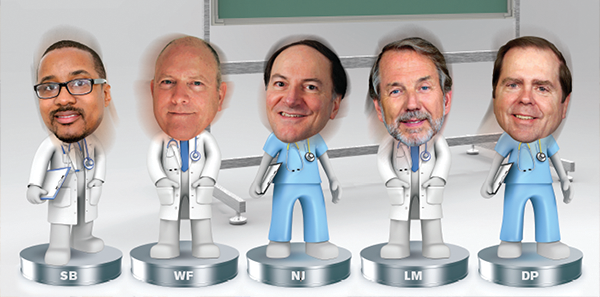
SB: I would tend to agree. Having scale and having a sound financial base does allow you the flexibility to invest and experiment and even make mistakes. I think that, again, having those types of resources allows you to evolve, and democratic groups cannot be afraid to experiment to make investments in themselves and to change to meet those expectations of our hospital partners. It is more challenging when you have to service a certain amount of debt, or you have to make your shareholders at a smaller individual site happy.
Explore This Issue
ACEP Now: Vol 35 – No 01 – January 2016LM: There are such pressures to move toward models that lower costs and, perhaps for the first time ever, really pay us for quality and outcomes. I do believe, regardless of size or structure, any of us can succeed if we’re meeting the needs of our hospital clients/hospital customers. If the hospital is well-served, they will never call Dighton or us. On the other hand, if we serve their needs well, then I think they will call us. Ultimately, if you’re meeting the needs of the hospital, your contract is probably not going to go out for bid.
NJ: I agree with Lynn and might take it a step further. The groups that are taking care of the patients are also helping the hospital system. That’s what’s been good about our group; we’ve been able to take care of the patients and keep the hospital happy. As long as you take care of your hospital and your patients, the group, no matter what size, is going to survive no matter what the structure.
RM: What would be the one or two things people should start thinking about now in order to ensure success?
WF: I think the thing that won’t work is the concept that you train, you get board certified, and that you can spend the rest of your career practicing at Fort Apache. I think the folks that are going to be adding value, improving patient care, and improving population health are going to see themselves as being part of teams providing systems of care and improving processes of care, and are more likely to succeed.
NJ: What Wes said was brilliant. We’ve seen a change in how we define medical excellence. Back in the day, it used to be, “Did you order one of everything?” Now, it is not only, “Is your clinical care focus on the evidence and research to support your care?” but, “Is it also as efficient as possible?”
Pages: 1 2 3 | Single Page




No Responses to “Emergency Medicine Leaders Discuss Role of Democratic Groups in Future of EM”